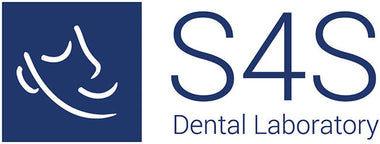HOW DO YOU STOP JAW FROM CLICKING?
A clicking jaw, also known as a popping or cracking jaw, can be more than just a minor inconvenience.
For some, it’s an occasional annoyance, while for others, it can be a persistent and painful issue that affects daily activities like eating, speaking, and even yawning.
But what causes a clicking jaw, and how can you stop it?
The good news is that jaw clicking can often be managed or stopped with a combination of lifestyle changes and professional treatments.
Why does your jaw click?
The sound you hear is often related to the temporomandibular joint (TMJ), which connects your jaw to your skull.
This is the joint responsible for the smooth movement of your jaw when talking, eating, or yawning.
When this joint becomes misaligned or the cushioning disc between the bones slips out of place, it can lead to clicking sounds, pain, or even difficulty moving your jaw.
Some of the most common causes of jaw clicking include:
- Bruxism (teeth grinding and clenching)
- Temporomandibular Joint Disorder (TMD)
- Misaligned bite
- Injury or trauma
- Stress and tension
Bruxism and clicking jaws
Bruxism, or teeth grinding, is a common cause of jaw clicking.
It often happens during sleep, and the constant pressure from grinding can strain the muscles around the TMJ.
Over time, this strain can cause the jaw to click when opening and closing the mouth.
Bruxism can be triggered by factors such as stress, anxiety, misaligned teeth, or certain medications.
If left untreated, bruxism can lead to more severe TMJ disorders and cause chronic jaw pain.
Misaligned bite and clicking jaws
A misaligned bite, also known as malocclusion, occurs when the teeth don’t come together correctly.
This misalignment can put uneven pressure on the TMJ, leading to clicking sounds and discomfort when you chew, speak, or yawn.
If you suspect that your jaw clicking may be due to a misaligned bite, it’s important to consult with a dentist who can assess your teeth and recommend treatment to correct the issue.
Correcting a misaligned bite with orthodontic treatment such as braces or clear aligners may alleviate jaw clicking and improve your overall oral health.
How to stop jaw clicking
If your jaw is clicking, there are several ways to help reduce or eliminate the issue.
These methods range from simple at-home remedies to professional treatments.
Here’s what you can do:
- Practice jaw exercised to strengthen the muscles around your TMJ
- Apply heat or cold compress to relax the muscles/reduce inflammation
- Avoid hard or chewy foods
- Manage stress with relaxation techniques
- Manage bruxism effects with a mouthguard
The SCi (Sleep Clench Inhibitor): A solution for jaw clicking
One of the most effective treatments for jaw clicking caused by bruxism is the SCi.
The SCi is a small, custom-made appliance which sits between your front teeth.
By limiting your ability to clench or grind your teeth, the SCi helps relax the jaw muscles, which can significantly reduce the clicking sound and associated discomfort.
Don't ignore a clicking jaw
If you’re experiencing jaw clicking, it’s important to address it sooner rather than later to prevent further complications.
If you think bruxism or jaw clenching could be the cause of your clicking jaw, don’t wait to seek help.
Find the nearest SCi dentist today and take the first step toward a more comfortable, pain-free jaw.
The sooner you address the issue, the sooner you can enjoy lasting relief and prevent further strain on your jaw muscles and TMJ.
